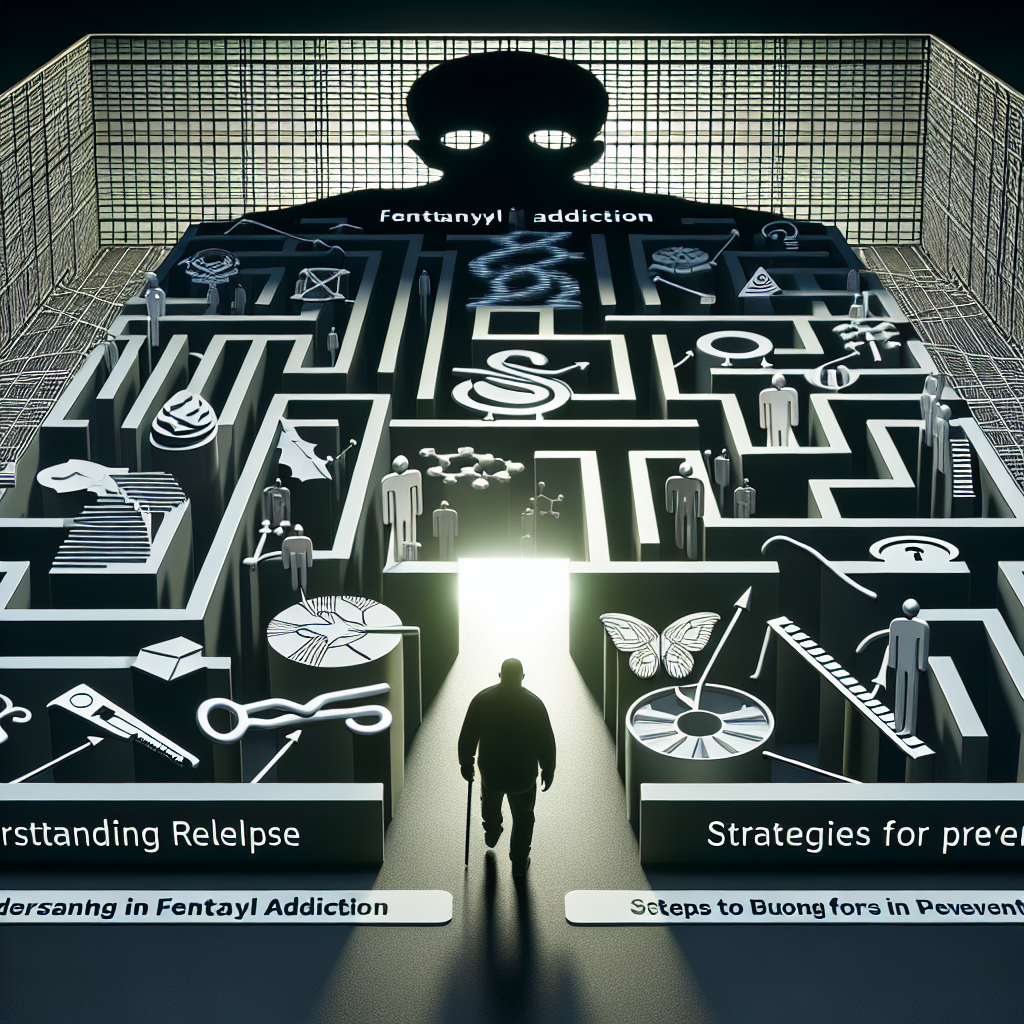-
Table of Contents
“Breaking the Cycle: Strategies to Understand and Prevent Cocaine Relapse”
Introduction
Understanding relapse in cocaine addiction is crucial for developing effective prevention strategies and supporting long-term recovery. Cocaine addiction is a chronic, relapsing disorder characterized by compulsive drug-seeking behavior and use, despite harmful consequences. Relapse, the return to drug use after an attempt to stop, is a common and challenging aspect of addiction recovery. It is influenced by various factors, including psychological stress, environmental cues, and biological changes in the brain. Preventing relapse involves a comprehensive approach that includes behavioral therapies, medication-assisted treatment, support groups, and lifestyle changes. By addressing the underlying causes of addiction and providing ongoing support, individuals can improve their chances of maintaining sobriety and achieving lasting recovery.
Recognizing Early Warning Signs of Cocaine Relapse
Recognizing early warning signs of cocaine relapse is crucial in the journey toward long-term recovery. Understanding these signs can empower individuals to take proactive steps to prevent a full-blown relapse, thereby maintaining their sobriety and improving their overall well-being. One of the first indicators of a potential relapse is a change in behavior or mood. Individuals may start to isolate themselves from supportive friends and family, or they may exhibit increased irritability and restlessness. These shifts can often be subtle, but they are significant red flags that should not be ignored.
Another early warning sign is the resurgence of cravings. Cravings can be triggered by various factors, including stress, exposure to environments where cocaine use previously occurred, or even certain social situations. It’s essential to recognize that cravings are a normal part of the recovery process and do not signify failure. However, acknowledging them and seeking support can prevent them from escalating into a relapse. Additionally, changes in thought patterns can also signal an impending relapse. Negative self-talk, feelings of hopelessness, or romanticizing past drug use are all cognitive distortions that can undermine recovery efforts. By identifying these thought patterns early, individuals can challenge and reframe them, thereby reducing their power.
Physical symptoms should not be overlooked either. Insomnia, changes in appetite, and unexplained fatigue can all be physical manifestations of emotional distress and can precede a relapse. Monitoring these symptoms and addressing them through healthy coping mechanisms, such as exercise, proper nutrition, and adequate sleep, can be beneficial. Furthermore, a decline in self-care routines can also be a precursor to relapse. Neglecting personal hygiene, skipping meals, or abandoning hobbies and interests are all signs that an individual may be struggling. Re-establishing these routines can provide a sense of normalcy and stability, which is vital for maintaining sobriety.
Social dynamics play a significant role in the recovery process. Reconnecting with old friends who are still using cocaine or frequenting places associated with past drug use can be detrimental. It’s important to build a new support network of individuals who encourage and reinforce a drug-free lifestyle. Engaging in support groups, therapy, or community activities can provide the necessary social support to stay on track. Emotional triggers are another critical aspect to consider. Feelings of loneliness, anger, or sadness can be overwhelming and may lead to a relapse if not addressed. Developing healthy emotional coping strategies, such as mindfulness, meditation, or journaling, can help manage these emotions effectively.
Financial instability can also be a stressor that may lead to relapse. Financial planning and seeking assistance from financial advisors or support services can alleviate some of this pressure. It’s important to remember that seeking help is a sign of strength, not weakness. Lastly, complacency can be a silent but dangerous threat to recovery. Believing that one is “cured” and no longer needs to follow their recovery plan can lead to a false sense of security. Continuous commitment to recovery practices, such as attending meetings, following a treatment plan, and staying connected with a support network, is essential for long-term success.
In conclusion, recognizing early warning signs of cocaine relapse involves a comprehensive understanding of behavioral, emotional, cognitive, physical, social, and financial indicators. By staying vigilant and proactive, individuals can take the necessary steps to prevent relapse and continue on their path to recovery. Remember, the journey to sobriety is ongoing, and every step taken toward recognizing and addressing these warning signs is a step toward a healthier, more fulfilling life.
Effective Strategies for Preventing Cocaine Relapse
Preventing relapse in cocaine addiction is a multifaceted challenge that requires a comprehensive approach. Understanding the underlying mechanisms of addiction and relapse is crucial for developing effective strategies. Cocaine addiction is characterized by intense cravings and a high potential for relapse, even after periods of abstinence. This is due to the drug’s profound impact on the brain’s reward system, which can create long-lasting changes in brain function and behavior. However, with the right strategies, individuals can significantly reduce their risk of relapse and maintain long-term recovery.
One of the most effective strategies for preventing cocaine relapse is engaging in behavioral therapies. Cognitive-behavioral therapy (CBT) is particularly beneficial as it helps individuals recognize and change negative thought patterns and behaviors associated with drug use. By developing coping skills and learning to manage stress and triggers, individuals can better navigate the challenges of recovery. Additionally, contingency management, which provides tangible rewards for maintaining sobriety, has shown promise in reinforcing positive behaviors and reducing the likelihood of relapse.
Another critical component in preventing relapse is building a strong support network. Social support from family, friends, and support groups can provide encouragement, accountability, and a sense of belonging. Support groups, such as Narcotics Anonymous (NA), offer a community of individuals who understand the struggles of addiction and can share their experiences and strategies for staying sober. Regular participation in these groups can help individuals stay motivated and committed to their recovery journey.
In addition to behavioral therapies and social support, lifestyle changes play a significant role in preventing relapse. Engaging in regular physical activity, maintaining a healthy diet, and getting adequate sleep can improve overall well-being and reduce stress, which is a common trigger for relapse. Mindfulness practices, such as meditation and yoga, can also help individuals stay grounded and focused on their recovery goals. These practices promote self-awareness and emotional regulation, making it easier to cope with cravings and avoid relapse.
Medication-assisted treatment (MAT) can also be an effective strategy for some individuals. While there are currently no FDA-approved medications specifically for cocaine addiction, certain medications used for other conditions have shown potential in reducing cravings and preventing relapse. For example, medications that target the brain’s dopamine system, such as modafinil and bupropion, have been studied for their potential benefits in cocaine addiction treatment. It is essential for individuals to work closely with their healthcare providers to determine the most appropriate treatment plan for their specific needs.
Furthermore, addressing co-occurring mental health disorders is vital in preventing relapse. Many individuals with cocaine addiction also struggle with conditions such as depression, anxiety, or post-traumatic stress disorder (PTSD). Integrated treatment that addresses both addiction and mental health issues can lead to better outcomes and reduce the risk of relapse. Therapy, medication, and support groups tailored to co-occurring disorders can provide comprehensive care and support for individuals in recovery.
Lastly, developing a relapse prevention plan is a proactive approach to maintaining sobriety. This plan should include identifying triggers, developing coping strategies, and having a list of contacts for immediate support if cravings or high-risk situations arise. Regularly reviewing and updating the plan can help individuals stay prepared and resilient in their recovery journey.
In conclusion, preventing relapse in cocaine addiction requires a combination of behavioral therapies, social support, lifestyle changes, medication-assisted treatment, addressing co-occurring disorders, and having a solid relapse prevention plan. By embracing these strategies, individuals can empower themselves to overcome the challenges of addiction and achieve lasting recovery. The journey may be difficult, but with determination, support, and the right tools, a life free from cocaine addiction is possible.
The Role of Support Systems in Cocaine Relapse Prevention
Relapse in cocaine addiction is a complex and multifaceted issue that can be disheartening for both individuals struggling with addiction and their loved ones. However, understanding the role of support systems in preventing relapse can provide a beacon of hope and a pathway to sustained recovery. Support systems, encompassing family, friends, healthcare professionals, and peer support groups, play a crucial role in helping individuals navigate the challenging journey of overcoming cocaine addiction.
One of the primary ways support systems contribute to relapse prevention is by providing emotional stability. Addiction often isolates individuals, making them feel alone and misunderstood. A robust support network can counteract these feelings by offering empathy, understanding, and encouragement. When individuals feel supported and valued, they are more likely to stay committed to their recovery journey. For instance, family members who educate themselves about addiction can offer more effective support, creating an environment where the individual feels safe to express their struggles and triumphs.
Moreover, support systems can help individuals develop and maintain healthy coping mechanisms. Cocaine addiction often stems from an attempt to cope with stress, trauma, or other underlying issues. Supportive relationships can provide alternative ways to manage these triggers. Friends and family can encourage participation in activities that promote well-being, such as exercise, hobbies, or mindfulness practices. Additionally, healthcare professionals, including therapists and counselors, can offer strategies and tools tailored to the individual’s needs, helping them build resilience against relapse.
Peer support groups, such as Narcotics Anonymous (NA) or Cocaine Anonymous (CA), also play a vital role in relapse prevention. These groups offer a sense of community and shared experience that can be incredibly powerful. Being surrounded by others who have faced similar challenges can reduce feelings of isolation and provide practical advice and inspiration. Hearing success stories from peers who have maintained long-term sobriety can instill hope and motivation. Furthermore, these groups often emphasize accountability, which can be a strong deterrent against relapse.
In addition to emotional and psychological support, practical assistance from support systems can be invaluable. This might include helping with daily responsibilities, such as childcare or transportation, which can reduce stress and allow the individual to focus more on their recovery. Support systems can also assist in creating a structured environment, which is crucial for those in early recovery. A stable routine can minimize exposure to high-risk situations and triggers, thereby reducing the likelihood of relapse.
However, it is essential to recognize that support systems themselves need support. Family members and friends can experience burnout and emotional strain, which can impact their ability to provide effective support. Therefore, it is crucial for them to seek their own support, whether through therapy, support groups for families of addicts, or self-care practices. By taking care of their own well-being, they can be more present and effective in supporting their loved one’s recovery.
In conclusion, the role of support systems in preventing cocaine relapse cannot be overstated. They provide emotional stability, help develop healthy coping mechanisms, offer a sense of community, and assist with practical needs. By fostering a supportive and understanding environment, individuals struggling with cocaine addiction can find the strength and resilience needed to maintain their sobriety. While the journey may be challenging, the presence of a strong support system can make all the difference, turning the possibility of relapse into an opportunity for continued growth and recovery.
Coping Mechanisms for Managing Triggers in Cocaine Addiction Recovery
Understanding relapse in cocaine addiction and how to prevent it is a crucial aspect of the recovery journey. Relapse, often perceived as a failure, is actually a common part of the recovery process. It is essential to recognize that relapse does not signify the end of the road but rather an opportunity to reassess and strengthen one’s coping mechanisms. Managing triggers effectively is a vital component in preventing relapse and maintaining long-term sobriety.
Triggers are stimuli that can provoke cravings and lead to relapse. They can be external, such as people, places, or situations associated with past drug use, or internal, such as emotions and thoughts. Identifying these triggers is the first step in developing effective coping mechanisms. Self-awareness plays a significant role in this process, as it allows individuals to recognize patterns and anticipate potential challenges.
One effective coping mechanism is the development of a strong support network. Surrounding oneself with supportive friends, family, and peers who understand the struggles of addiction can provide a sense of belonging and encouragement. Support groups, such as Narcotics Anonymous, offer a safe space to share experiences and gain insights from others who have faced similar challenges. These connections can be invaluable in moments of vulnerability, providing both emotional support and practical advice.
Another crucial strategy is the practice of mindfulness and stress management techniques. Mindfulness involves staying present in the moment and observing thoughts and feelings without judgment. Techniques such as meditation, deep breathing exercises, and yoga can help individuals manage stress and reduce the intensity of cravings. By cultivating a sense of inner calm, individuals can respond to triggers with greater resilience and clarity.
Engaging in healthy activities and hobbies is also an effective way to manage triggers. Physical exercise, creative pursuits, and volunteering can provide a sense of purpose and fulfillment, diverting attention away from cravings. These activities not only occupy time but also contribute to overall well-being, enhancing both physical and mental health. Finding joy and satisfaction in new interests can replace the void left by drug use, making it easier to resist the temptation to relapse.
Setting realistic goals and celebrating small victories is another important aspect of managing triggers. Recovery is a gradual process, and acknowledging progress, no matter how small, can boost motivation and self-esteem. Keeping a journal to track achievements and reflect on personal growth can serve as a powerful reminder of how far one has come. This practice reinforces the commitment to sobriety and provides a source of inspiration during challenging times.
Additionally, seeking professional help when needed is a sign of strength, not weakness. Therapists and counselors specializing in addiction can offer personalized strategies and support tailored to individual needs. Cognitive-behavioral therapy (CBT), for example, can help individuals reframe negative thought patterns and develop healthier coping mechanisms. Medication-assisted treatment (MAT) may also be an option for some, providing additional support in managing cravings and reducing the risk of relapse.
In conclusion, understanding relapse in cocaine addiction and how to prevent it involves recognizing the role of triggers and developing effective coping mechanisms. By building a strong support network, practicing mindfulness, engaging in healthy activities, setting realistic goals, and seeking professional help, individuals can navigate the challenges of recovery with resilience and hope. Relapse is not a sign of failure but an opportunity to learn and grow stronger. With determination and the right strategies, long-term sobriety is within reach.
Q&A
1. **What are common triggers for relapse in cocaine addiction?**
– Common triggers include stress, exposure to environments or people associated with past drug use, negative emotions, and social pressures.
2. **How does cognitive-behavioral therapy (CBT) help in preventing relapse?**
– CBT helps by teaching individuals to recognize and avoid triggers, develop coping strategies, and change negative thought patterns that contribute to drug use.
3. **What role does medication play in preventing relapse in cocaine addiction?**
– Currently, there are no FDA-approved medications specifically for cocaine addiction, but some medications are being researched for their potential to reduce cravings and withdrawal symptoms.
4. **How important is a support system in preventing relapse?**
– A strong support system, including family, friends, and support groups, is crucial as it provides emotional support, accountability, and encouragement to stay drug-free.
Conclusion
Understanding relapse in cocaine addiction involves recognizing the complex interplay of psychological, environmental, and biological factors that contribute to the recurrence of drug use. Effective prevention strategies include comprehensive treatment plans that integrate behavioral therapies, such as cognitive-behavioral therapy (CBT) and contingency management, with pharmacological interventions when appropriate. Additionally, addressing co-occurring mental health disorders, providing robust social support systems, and fostering lifestyle changes that promote healthy coping mechanisms are crucial. Continuous monitoring and long-term follow-up care are essential to sustain recovery and prevent relapse. By adopting a multifaceted approach, individuals can achieve and maintain sobriety, ultimately improving their overall quality of life.



